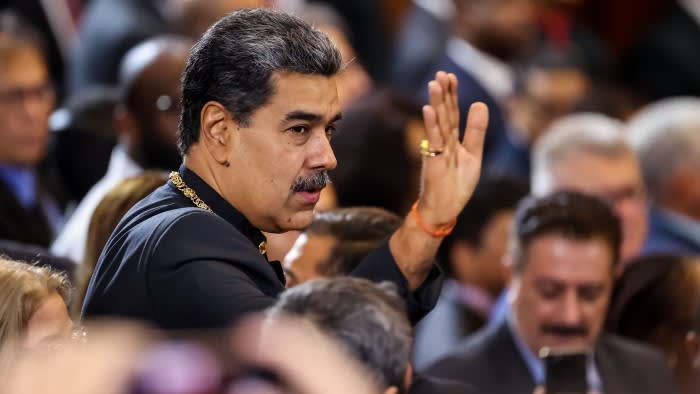The Biden Administration’s Agreement with Venezuela Unravels Leading to Uncertainty
Background
The prize was tempting: a chance to stem the wave of refugees heading for the US border in an election year, improve the supply of non-Russian oil and gas to world markets, and return a major Latin American nation to democracy.
The unravelling of the Biden administration’s agreement with the Venezuelan government has left the US facing the worst of both worlds: the failure so far of its negotiating strategy and a likely return to a sanctions policy that has failed before.
Keen to move away from a Trump-era policy of “maximum pressure” financial penalties designed to unseat authoritarian President Nicolás Maduro, the Biden administration negotiated with the regime for more than a year at secret talks. They reached an understanding that crippling US sanctions on oil and gas — the lifeblood of Venezuela’s economy — would be lifted in return for steps towards free and fair presidential elections later this year and the release of wrongfully detained US citizens.
A formal agreement reflecting the US-Venezuelan understanding was signed between the Venezuelan opposition and the Maduro government in Barbados last October.
Unravelling of the Agreement
Within days, the Barbados accord started to unravel. The Maduro government suspended the results of an opposition primary and later upheld a ruling banning the victorious candidate, María Corina Machado, from running. This year it launched a fresh crackdown, with several dozen opposition activists arrested.
Maduro even revived a long-simmering territorial dispute with neighboring Guyana in December, threatening to annex two-thirds of its land by force, though he later backed down.
The US Response
“It was a mistake to hand over everything to Maduro with almost nothing in return,” said Venezuelan opposition politician Leopoldo López. “It was very predictable what would happen next. As he has done so many times before, Maduro did not keep his side of the bargain.”
Keen to try to keep the Barbados deal alive, the Biden administration initially held back from punitive measures. But this week the US government reimposed sanctions on Venezuela’s mining sector and announced that oil and gas sanctions would be returned in April unless there was progress on political reforms.
Maduro’s vice-president Delcy Rodríguez rejected what she termed a “crude and inappropriate blackmail and ultimatum” and threatened to halt deportation flights and review all existing cooperation.
Despite this week’s developments, the senior state department official said the Biden administration had not given up. “We still believe the electoral road map process is the most viable path to competitive elections in Venezuela this year and we continue to support it,” he said.
Concerns and Speculations
But the fast-deteriorating situation has dismayed both the doves who wanted to persist with negotiations and the hawks who never believed Maduro was serious about a competitive election.
The situation now looks bleak. Virtually nobody believes Machado will be allowed to run. The pro-market former lawmaker won the opposition primary with more than 90 per cent of the vote and has filled squares across the country during her campaign rallies last year, presenting a real threat to Maduro.
“You need to play hardball with Maduro. And this administration won’t,” said Juan Cruz, Donald Trump’s top White House official for Latin America.
There is uncertainty about the future and the effectiveness of sanctions. Venezuela’s dire economic condition continues to worsen as the country still faces political instability and economic collapse.
Conclusion
It remains to be seen how the US and Venezuela will navigate this escalating crisis. The Biden administration faces the challenge of managing the failure of its diplomatic engagement and the potential return to a failed sanctions policy. The unfolding events in Venezuela have raised concerns among investors and the international community about the country’s economic stability and future prospects.
